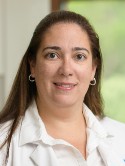| Abstract: |
Oncology nurses play a critical role in symptom assessment, management, and care coordination during telephone triage. Clinical efforts to reduce readmission hospital rates patients were found to include early interventions through telephone triage. After routine business hours, patients are limited to speaking with a hospital operator, on-call doctor, and often referred to an urgent care center. The After-Hours Telephone Triage (AHTT) program, a centralized call system, was created to provide patients telephone triage outside of the clinics routine business hours. The program allows for a patient to speak directly to an oncology nurse after hours. The program improves continuity of care and improved utilization of hospital resources such as symptom care clinics (SCC), urgent care center (UCC), or local partnership hospitals. With the collaboration of key stakeholders, a process map was developed and executed for the cancer patient journey. IT and telecom capabilities were launched to create a custom call back algorithm and manage call prioritization. A staffing model was created followed by recruitment, onboarding, and training of nurses. Streamlined documentation was created tailored to the telephone triage needs of the cancer patient. Key performance indicators identified were overall utilization, triage disposition, referrals, and calls escalated to the doctor. AHTT receives 1300 calls/week. Common reasons for calls are symptom management, prescription refills, and coordination of care. Eighty-six percent of calls are handled by nurses, 9% of calls nurses consult with on-call doctor, and 5% are transferred to the doctor. Fifty-five percent of the calls are triaged to be non-urgent, 25% urgent, and 4% emergent. Forty-one percent of patients are referred to the UCC, 22% are referred to SCC, and 37% are referred to a local partnership hospital. The AHTT is a nurse driven call center program that provides telephone triage to support cancer patients and mitigate symptom burden from cancer treatments. Nursing telephone triage interventions provided by this program can improve patient outcomes and assist with coordination of care. Collaborating with key stakeholders, utilizing technology platforms, and optimizing staffing volume, the AHTT program serves oncology patients outside hours. The findings are guiding educational strategies to optimize nursing practice, future implementation to new services, and innovative workflows to improve patient care. |





